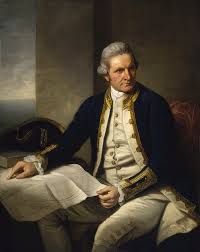The Legacy of James Cook: Navigator and Explorer

Introduction
James Cook, a distinguished British explorer and navigator, is best known for his three major voyages to the Pacific Ocean in the 18th century. His expeditions significantly expanded the world’s geographical knowledge and had lasting impacts on the islands and regions he visited. As we commemorate the important contributions of Cook during this period, it is essential to understand the implications of his explorations for both the indigenous populations and the broader context of maritime history.
Major Voyages and Discoveries
Cook set sail on his first voyage aboard HMS Endeavour in 1768, primarily tasked with observing the transit of Venus across the sun. However, this journey led to the discovery of New Zealand and the east coast of Australia, where he famously landed at Botany Bay in 1770. Cook’s meticulous mapping of these new lands opened them up for extensive exploration and colonisation, facilitating British expansion in the region.
His subsequent voyages (1772-1775 and 1776-1779) involved searching for the fabled southern continent, known as Terra Australis. Although Cook did not find this landmass, he made significant observations in places such as Hawaii, Alaska, and the Society Islands. His charts and records were invaluable resources for future navigators.
Impact on Indigenous Populations
While Cook’s explorations are often celebrated for their scientific achievements, they also brought about adverse effects on the indigenous communities he encountered. In Australia, for instance, his arrival heralded the beginning of British colonisation, which had devastating consequences for Aboriginal peoples, including land dispossession and cultural disruption. Similarly, in Hawaii, Cook’s arrival initially led to friendly exchanges, but ultimately culminated in conflict, resulting in his death in 1779.
Conclusion
The legacy of James Cook is complex; he is revered as a pioneer of maritime exploration, yet his expeditions also mark the beginning of colonial encounters that had lasting impacts on indigenous populations. As we reflect on Cook’s life and achievements, it is vital to critically assess the broader implications of his journeys and strive to understand the full scope of their influence on history. Today, Cook is remembered not just as a skilled navigator but as a figure whose voyages shaped the destiny of nations and cultures.









